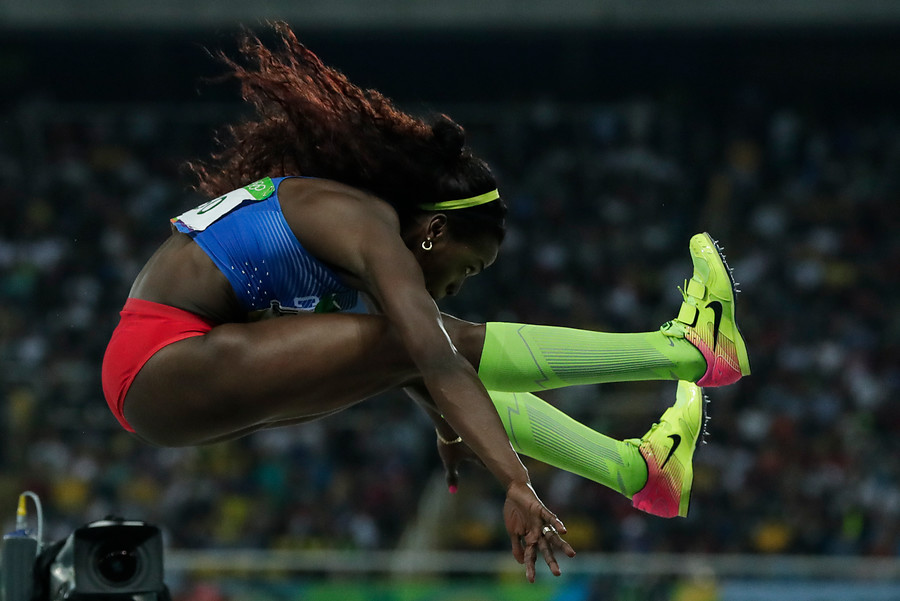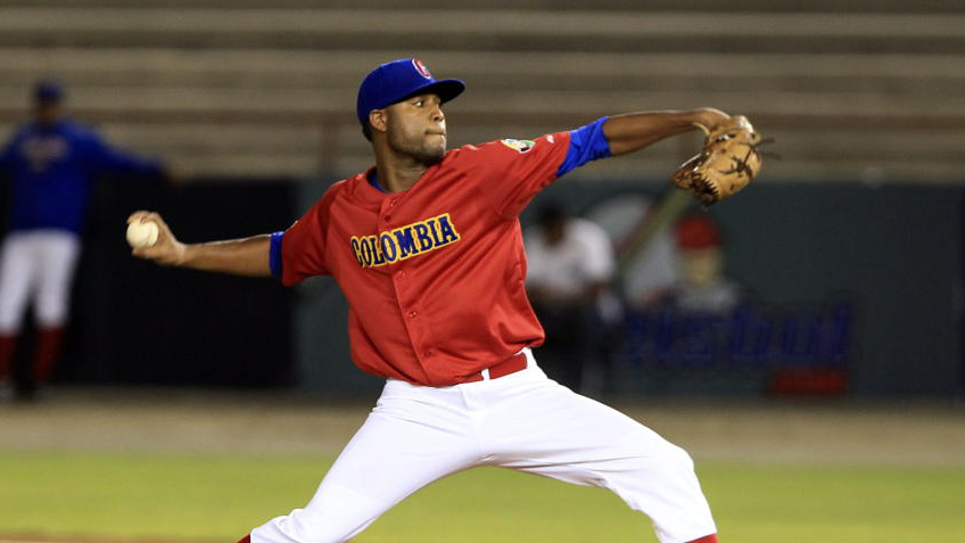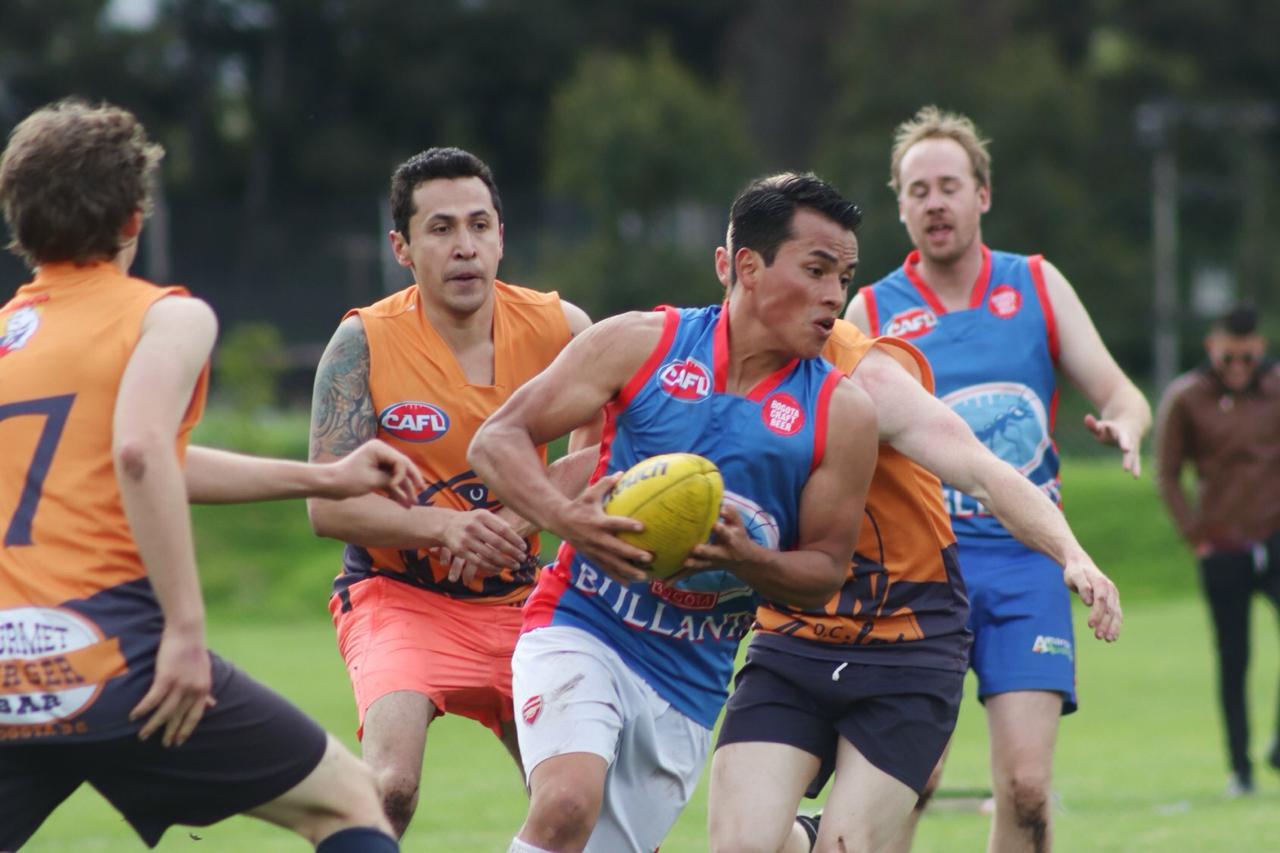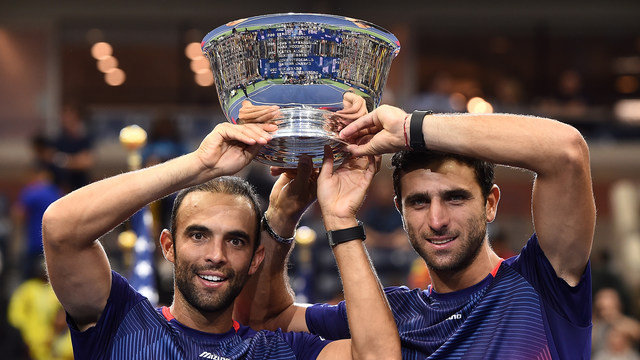
Colombian fans were present in large numbers at the Copa América quarterfinal. Photo Freek Huigen
Santiago de Chile painted the country red after the home nation’s first ever Copa America 2015 win, beating Argentina on penalties. Colombia made an early exit that left many doubts over the team’s strength
With a Panenka penalty, Alexis Sánchez sent Santiago into rapturous euphoria. It was a tense Copa America 2015 final. 120 minutes of football were not enough for either side to find the net in a well-executed display of superb defensive play that left the star strikers shooting blanks at either end. Argentina, who had earlier ousted Colombia on penalties, missed two out of three spot-kicks this time, giving Alexis Sánchez the perfect opportunity to let the country explode into bliss.
A year before the Copa’s 100-year-anniversary in 2016, it was the pre-tournament favourites who ended up in the final. Both the home nation and their well respected neighbour had struggled on the way. Chile faced an especially difficult moment when star midfielder Arturo Vidal crashed his brand new Ferrari into the guardrail on the Chilean highway, in the middle of the tournament. He had been speeding and was under the influence of alcohol. In the video that came out after the accident ‘King Arturo’ was heard yelling at the police, “Handcuff me, but you will fuck the whole of Chile”. In a court hearing the next day, he lost his licence, but was allowed to stay on the team. Vidal recovered and went on to take the title, the first in Chile’s history.
Colombia hopes dashed

The Colombian team before the game against Peru. Photo: Freek Huigen
Colombia’s title aspirations had already ended the week before. Expectations were high after the quarterfinal showing in the World Cup 2014, but the spectacular win against Brazil could not cover up the shortcomings of the Colombian side. A victory over Peru in the final group match would have seen Los Cafeteros avoid Argentina in the quarterfinals and play either Paraguay or Bolivia. However, the strong Peruvian defence and a lack of creativity and killer instinct in the attacking half resulted in a 0-0 draw and encounter with favourites Argentina.
The quarterfinal against Los Albiceleste saw a surprising change in the line-up. Manager José Pékerman, who had made Radamel Falcao captain at the start of the tournament, dropped El Tigre in favour of Jackson Martínez. Martínez didn’t disappoint, but without the necessary support from the midfield Chachachá couldn’t make the difference either. For Argentina, superstars Lionel Messi and Ángel Di María created chance after chance but they were blocked by goalkeeper David Ospina at every attempt. The 26-year-old Arsenal stopper’s performance was the main reason for the goalless draw that led straight to penalties.
In the penalty shoot out, Falcao, who had come on 17 minutes before time to replace Jackson Martínez, did not fail. Neither did James Rodriguez or Juan Guillermo Cuadrado – both were erratic in the game, but netted their penalties. Luis Muriel, who had just played his first eight minutes of the tournament, shot the ball far over the goal. Argentina converted their first four penalties and Cardona also scored, before Biglia, walking visibly shakily to the 12 yard spot, hit it wide.
In the sudden-death extension of the shoot out, Camilo Zúñiga and Marcos Rojo missed the net before it was Jeison Murillo’s turn. The central defender, who only joined the team after the World Cup to replace Mario Yepes, came from playing a sensational tournament and a strong performance against the much feared Argentina offensive line, but he also skied his attempt. Argentine striker Carlos Tevez put an end to Colombia’s title illusions, leaving Ospina without a chance.
For Colombia, one positive note from Copa America 2015 was the great performance of Jeison Murillo, later crowned ‘best young player of the tournament’ but overall, it was their lack of offensive firepower that stood out. The total of seven attempts on goal in four matches between all the strikers and the only goal being scored by defender Murillo from a set piece, illustrates that perfectly.
‘Los Cafeteros’ went on their summer break to recover from the season and the tournament and will gather again at the end of August to start their preparations for the qualification cycle of the 2018 FIFA World Cup in Russia this October.
By Freek Huigen





